On April 3, 2011 I went kayaking on the Rivanna River with my friends Pete and Iva. It was only my second outing in the bright yellow Dagger Zydeco recreational kayak I had bought secondhand a few weeks earlier.
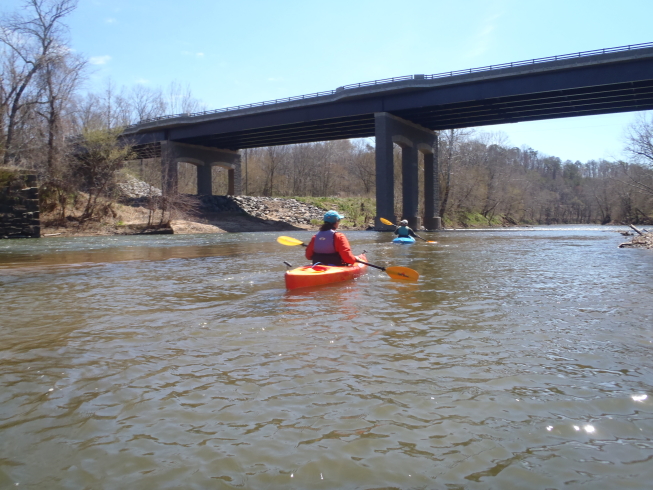
We set off from the boat landing at Palmyra where I have taken out on other paddling trips. We headed downstream on a stretch of river that was new to me and Iva.
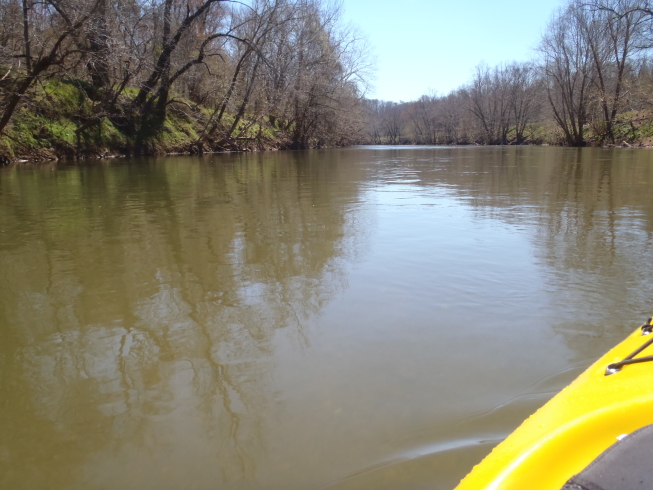
It was a pretty day for a float, with lots of sun and blue skies. It got up to 70 F, at least.
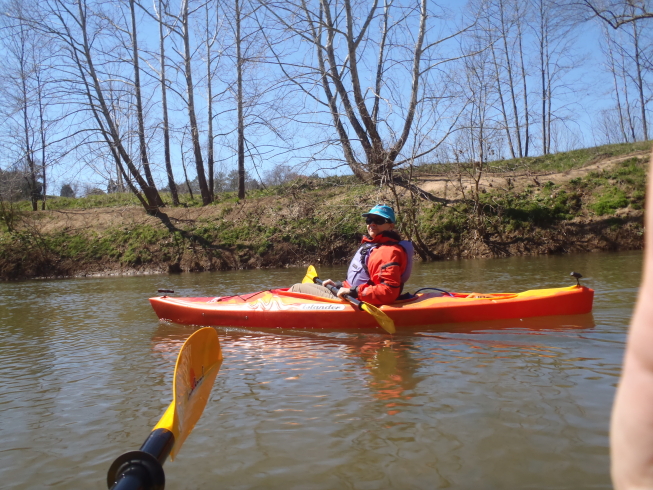
Iva was trying out a new-to-her boat (a secondhand find) for the first time.
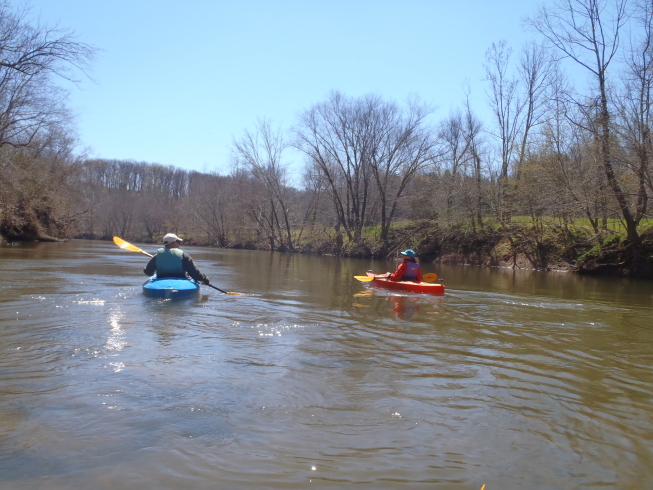
Pete (in the blue boat) was our guide, but there were hardly any rapids on this stretch of the river—just a few riffles and small waves—so we did not need a lot of navigational help.
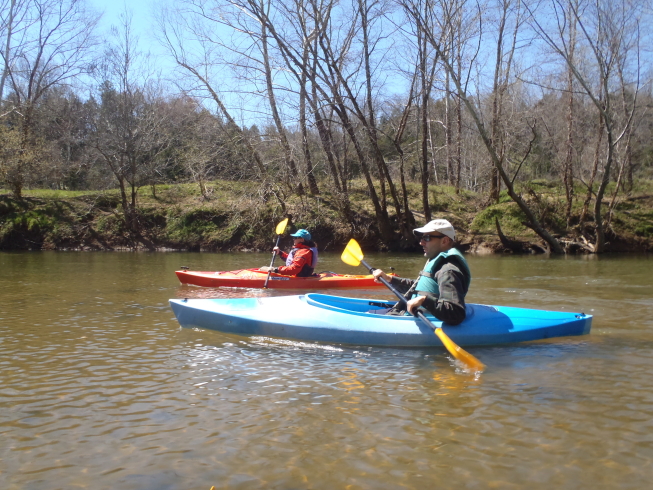
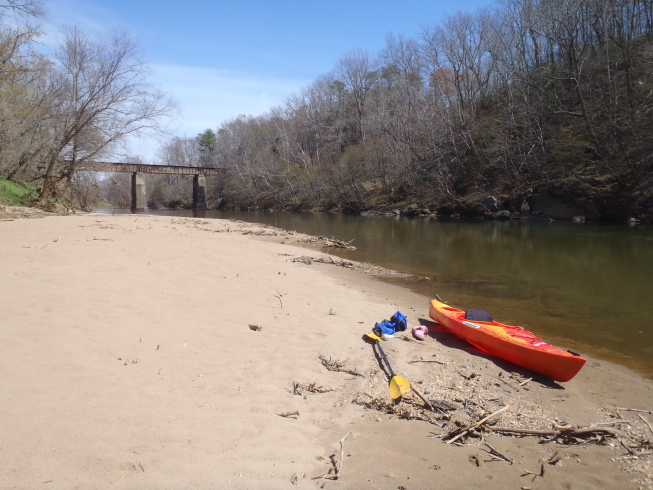
We stopped for lunch on this broad, sandy beach near an abandoned railroad bridge. As Pete pointed out, the old rail bed and bridge would make a great rail trail, but they have not been converted.
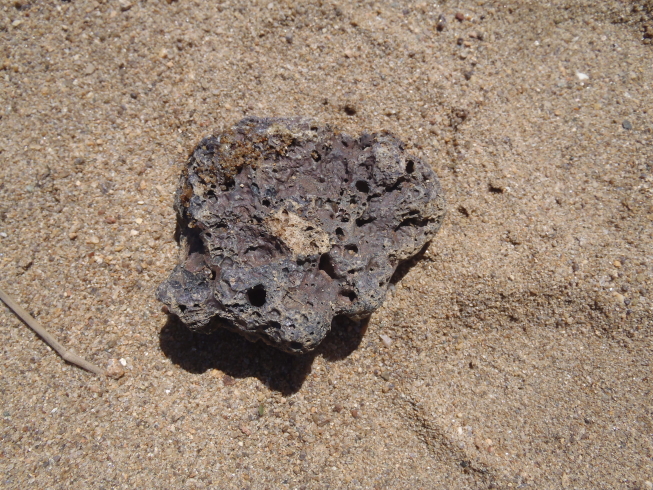
On the beach we found several pieces of slag from the steam trains that used to run nearby. Downstream, on the sand bar where we took out, we also found a lump of unburned coal, which Pete said had been dumped into the river in an accident when two trains collided near where we ate lunch.
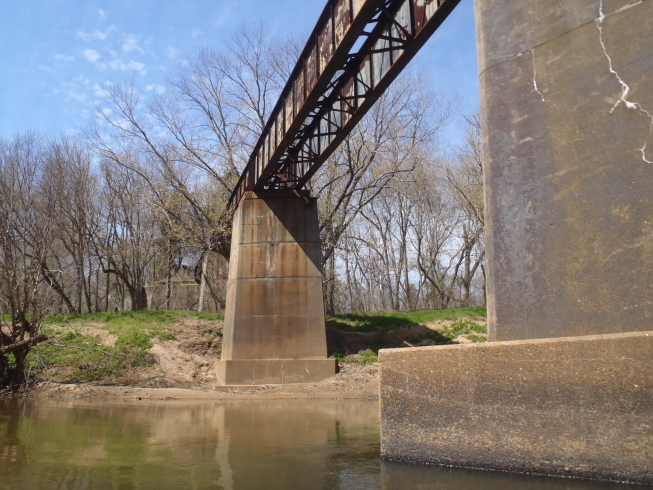
A view of the rail bridge as I was about to drift under it. I did not get my camera set in time to take a good photo from the upstream side showing the date on the bridge: 1908.

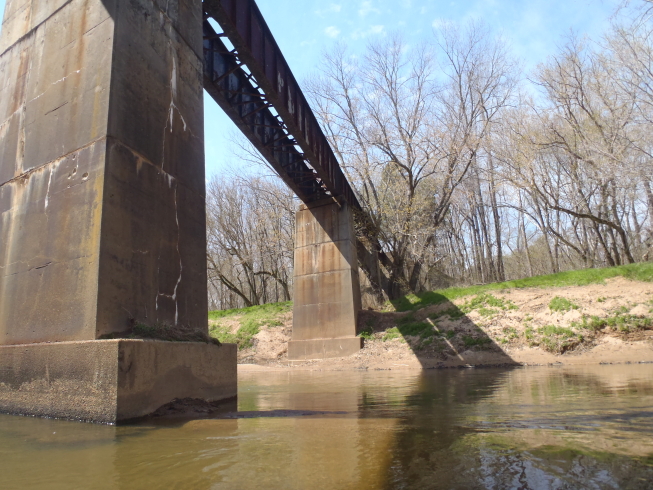
There is a large, multi-trunked tree with some of its trunks growing up through the bridge structure.
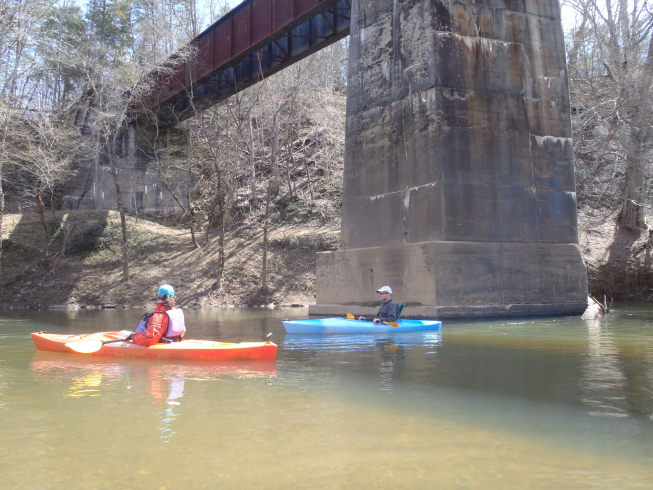
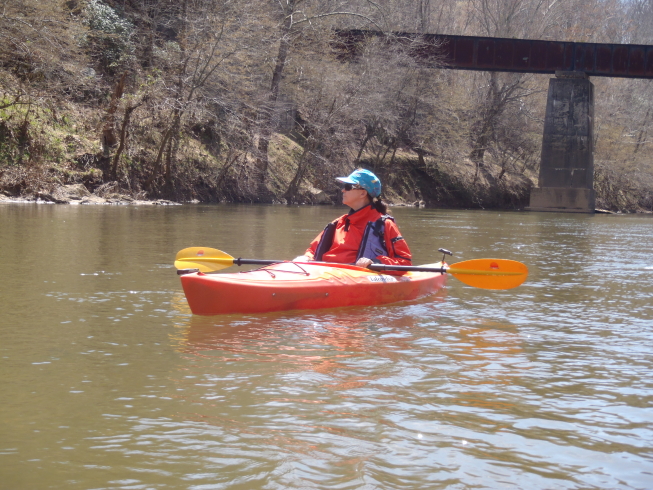
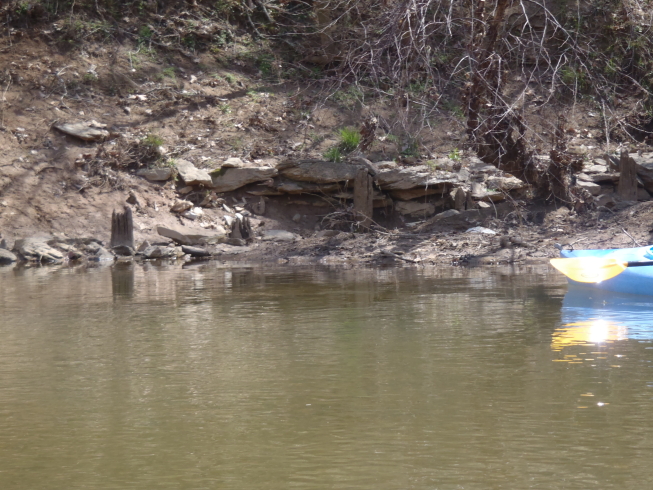
Along the way, Pete pointed out the ruins of many historical structures: dams, batteau sluices, batteau locks, canalboat locks, etc. If I remember right, what you see here is the remains of a batteau lock. You can make out the ruins of a stone wall with vertical timbers.
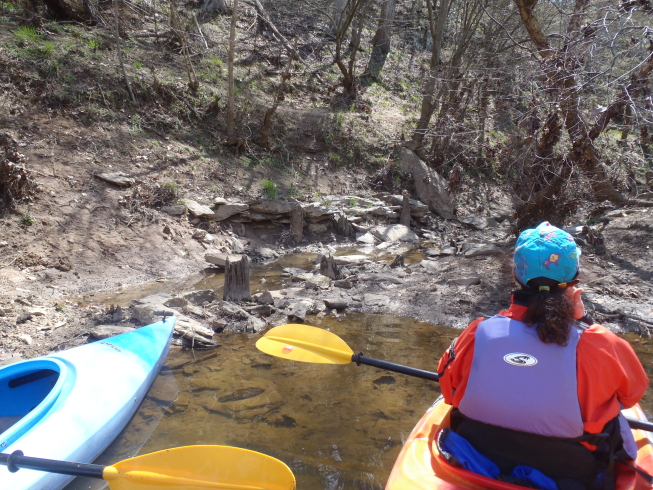
This picture gives you a slightly better sense of how the batteau lock formed a parallel channel (puddle in the center-left, with vertical timbers visible in front of and behind it) next to the river, separated by a small island (on the right, behind Iva’s head).
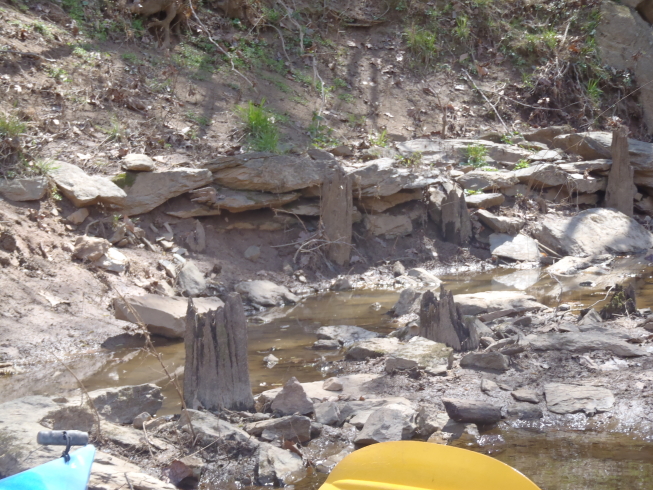
Better view of the timbers and stone wall.

Iva said she wanted a picture of herself kayaking, so I tried to take lots of pictures of her.
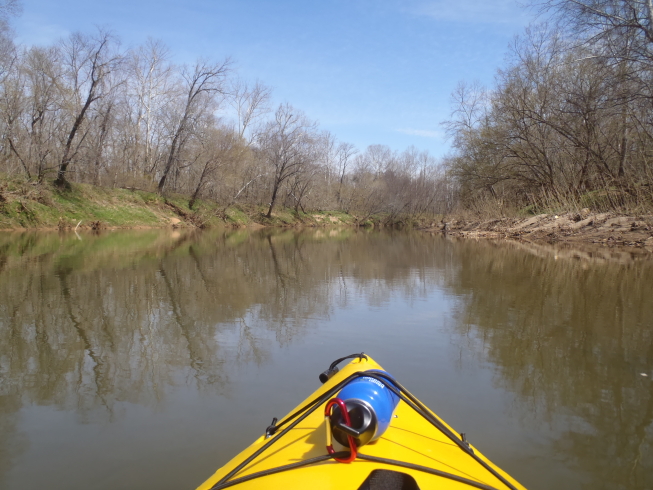
Pretty day. This area of Fluvanna County is quite rural. We did not see a single building between the put-in and take-out, with the exception of an old shed on a plantation near the take-out. Note the water bottle bungeed to my bow deck: one disadvantage of my kayak (a low-end model from a good maker) is that it has no bulkhead to divide the interior, but it has foam blocks in the bow & stern that are well positioned to trap objects that travel to either end of the kayak from the cockpit. After my first outing in the kayak, I had to poke around with a yardstick in order to extract a water bottle that had shifted far to the stern and gotten stuck.
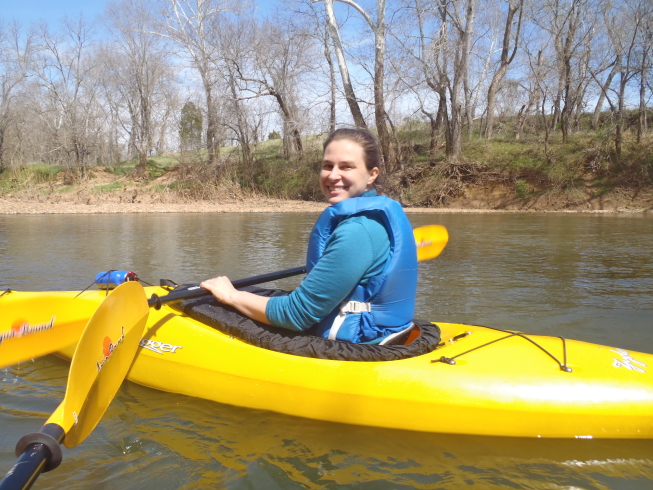
Iva volunteered to take some shots of me in my kayak. Thanks, Iva!
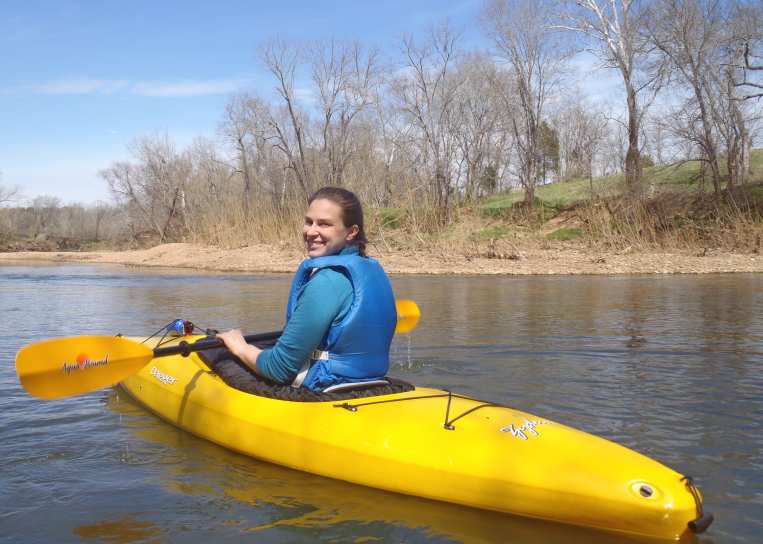
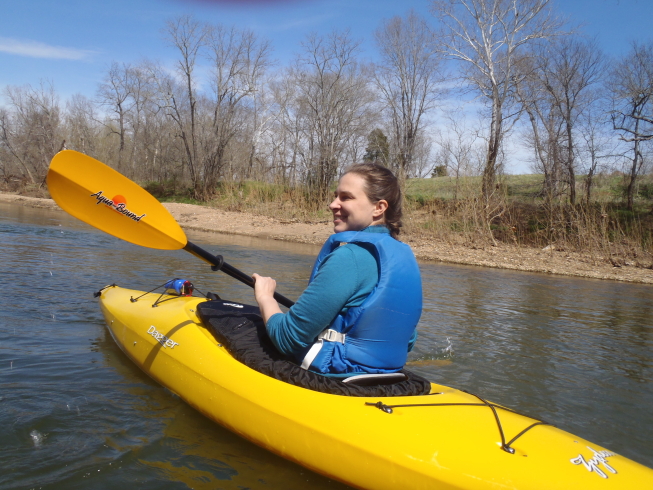
I still do not have a full skirt for the kayak, but I am thinking of getting one. The black fabric you see covering the cockpit here is a “splash deck,” what I want to call a “half skirt” (similar to what Mom and Dad have for their kayaks). It bungees around the lip of the cockpit, but has a large opening around my waist instead of being fitted to my torso like a full skirt. It worked pretty well today for keeping low waves and small splashes out of the cockpit; Pete and Iva both had to drain water out of their boats at the end, but I did not.
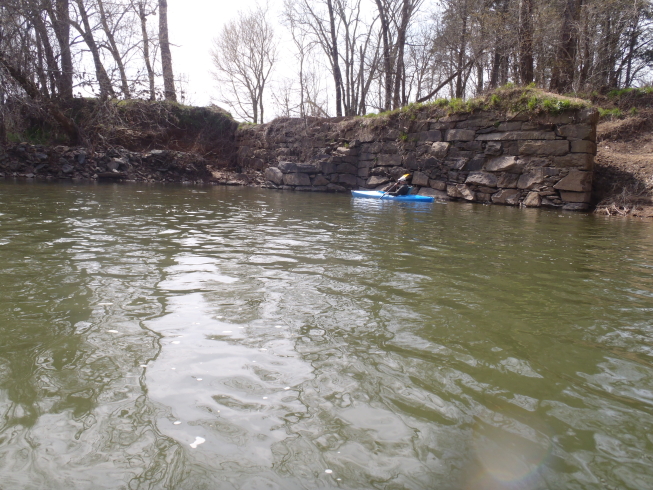
Here’s another historic structure that we visited: a canalboat lock.
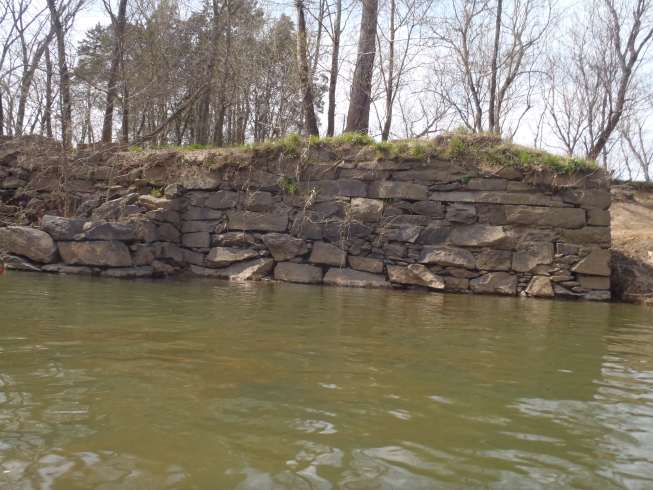
Parts of it are in impressively good shape.
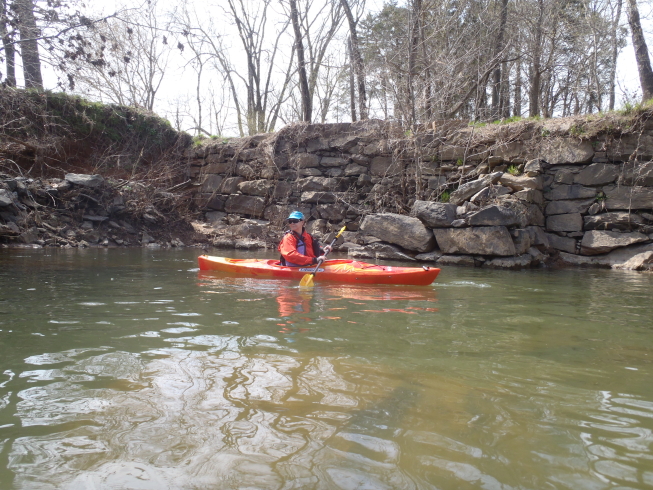
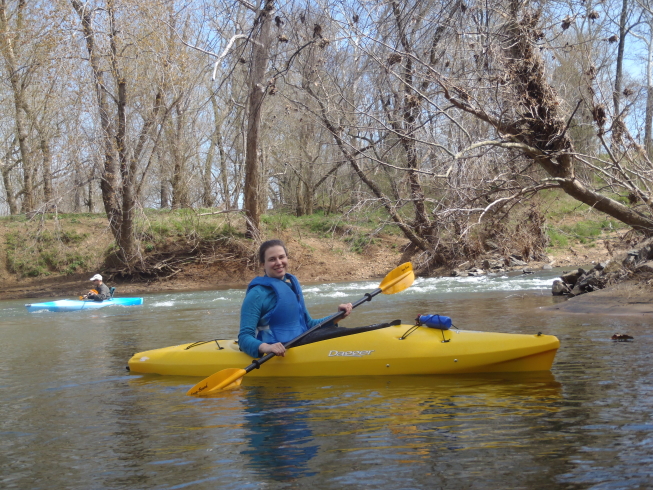
I pose for Iva again while Pete plays around in the small rapid near the canalboat lock.
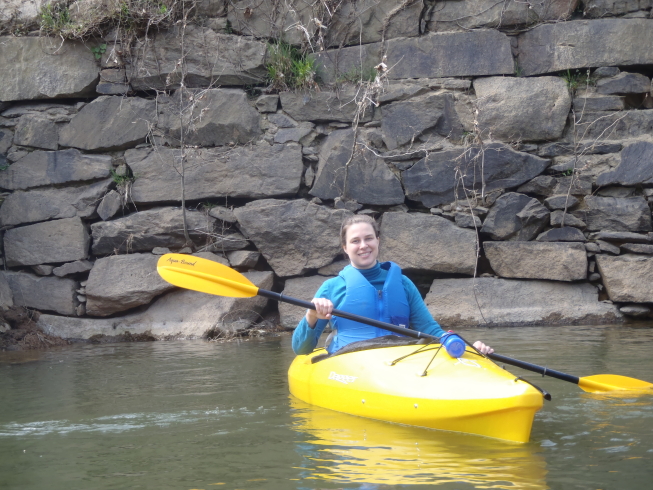
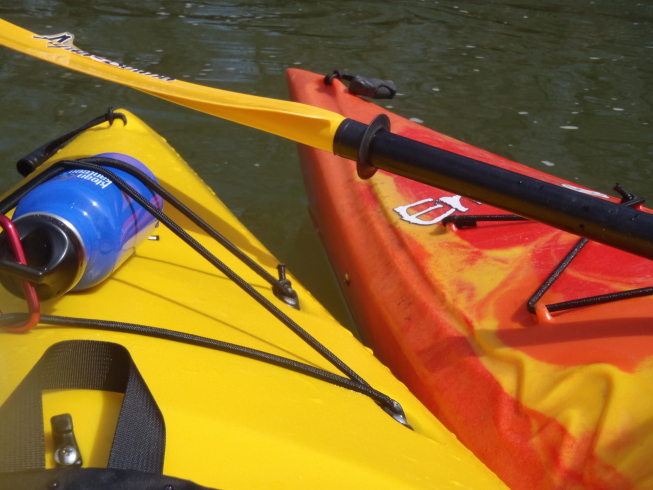
I liked the combination of our primary-colors kayaks.
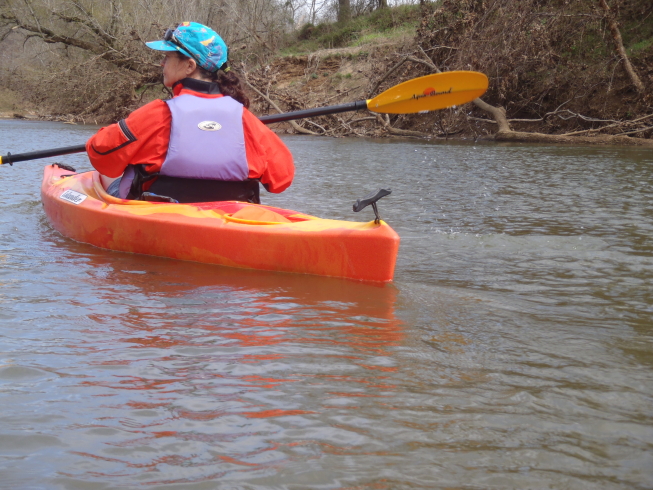
I was amused by how the carry handle on Iva’s kayak stood up on its own. The rope attaching it to the boat must be stiff!

We followed a great blue heron downstream most of the day. I did not get a very good picture of it, but you can just make it out in this one, standing on the right of that rock.
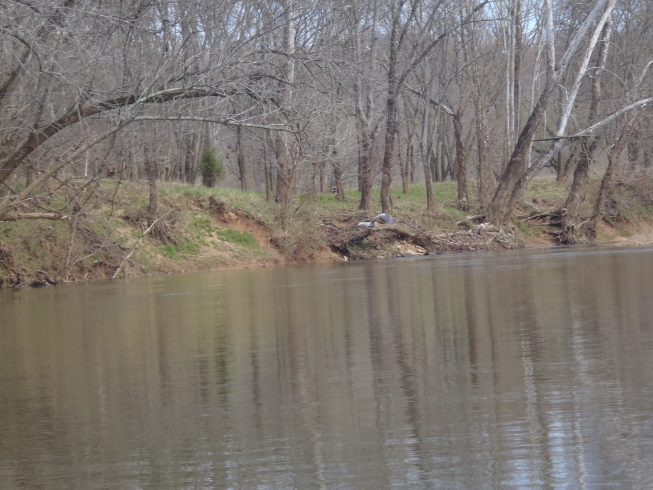
The great blue heron in flight—just a blue squiggle in the middle of the photo.
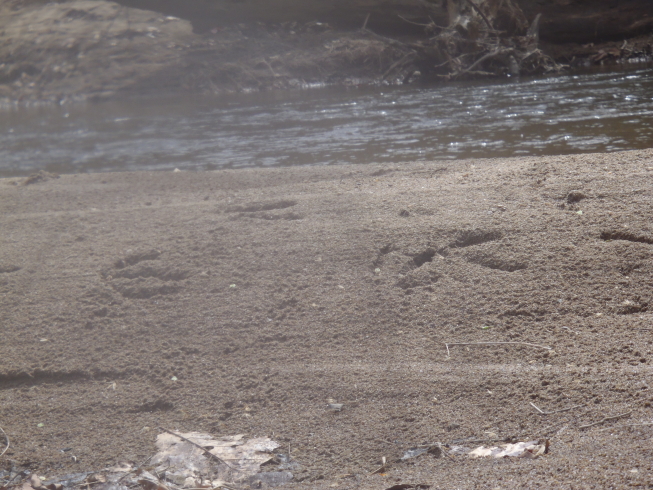
Heron tracks in a sandbar.
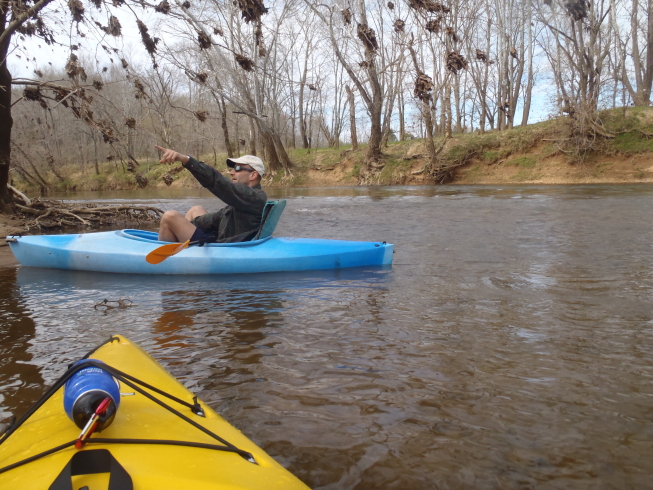
I can’t remember what Pete was pointing to here, but this is the spot where he later showed me how to “ferry”—move the kayak almost directly across the current, from banking to banking. I’ll have to practice the technique on stronger currents, but I was pleasantly surprised by my own success here. I felt like I was getting pushed downstream by the current, but when I got to the opposite side of the river I found myself just about directly across from the eddy where I’d started. I made four crossings of the river and the ferrying technique worked every time.